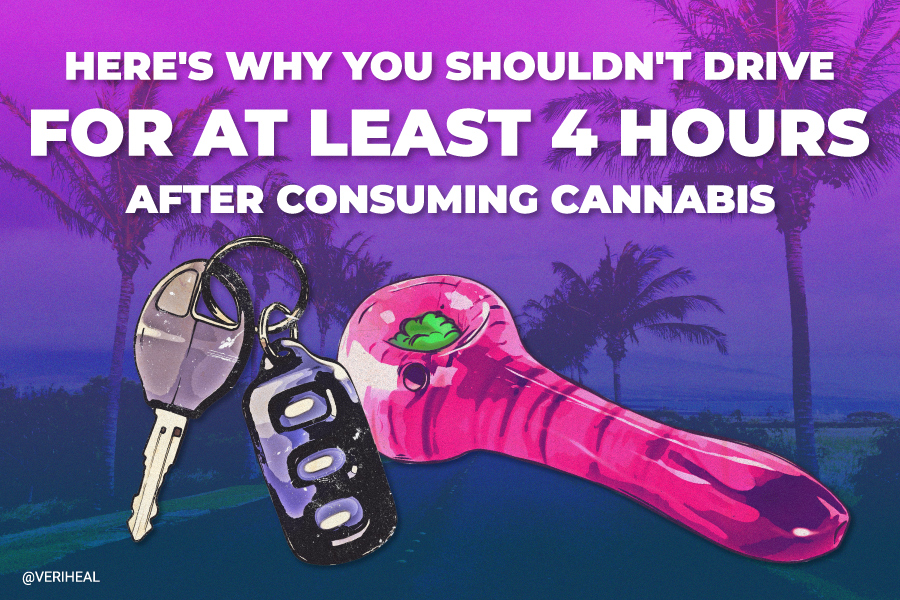Cannabis and driving could be a recipe for disaster, say researchers from the Center for Medicinal Cannabis Research in the University of California San Diego.
Their insightful report, which was published in the JAMA Psychiatry, found that cannabis may cause driving-related impairment for over four hours post-consumption. “Although performance was improving at 3.5 hours, recovery was not fully seen until 4.5 hours post smoking,” wrote the researchers responsible for carrying out this two-year randomized trial study.
In order to come to their conclusion, the team analyzed reported data from more than 191 regular hashish consumers. Specifically, the UCSD researchers acknowledged a depreciation in driving scores among those who enjoyed regular hashish joints.
THC Consumption Had a Sharp Impact on Driving Ability
Study subjects were given two different types of product for the experiment—a placebo cigarette and a hashish cigarette enriched with delta-9-tetrahydrocannabinol (THC), the latter of which was provided with a potency of either 5.9% or 13.4%.
Composite Drive Scores (CDS) appeared to sink immensely after motorists consumed THC. This score was based on each motorist’s performance after they participated in a 25-minute simulated driving experience.
Numerous “driving simulator variables, assessed prior to smoking and at multiple time points post-smoking” were analyzed for the study, which revealed that the most noticeable distinction in driving scores between the placebo- and the THC-consuming group was at 30 minutes and 90 minutes after inhalation.
It’s important to note that the majority of subjects were reluctant to drive immediately after smoking. According to the study results, 69% of motorists reported that they were ready to drive no sooner than 1.5 hours after inhalation.
“Although users in the THC group felt impaired and were hesitant to drive at 30 minutes, by 1 hour-30 minutes they believed the impairment was wearing off and were more willing to drive. This was despite their performance not significantly improving from the 30 minute point,” said the co-director of CMCR and professor of psychiatry at UCSD, Thomas Marcotte, Ph.D.
Why You Should Get Your Medical Marijuana Card
Veriheal has satisfied millions of patients nationwide by giving them access to these benefits
- Larger purchase limits
- Peace of mind
- Enhanced legal protection
- Access to higher potency strains
- Save up to 25% on cannabis purchases
- Skip the line at the dispensary
Marcotte went on to say that THC may induce “a false sense of safety” and that the initial few hours after consumption “may constitute a period of greatest risk since users are self-evaluating whether it is safe to drive.”
No Link Between Blood Concentration and Driving Ability
Another important takeaway from the study was that simulated driving ability decreased among THC consumers. However, there was no association between driving ability and blood THC content, nor was there any connection to the cigarette’s THC content material or past use of the psychotropic compound.
“The complete lack of correlation between blood concentrations and driving performance was somewhat surprising,” said the study’s co-author and professor of medical pathology at UCSD School of Medicine, Robert Fitzgerald, Ph.D.
Fitzgerald, who also serves as affiliate director of the Clinical Chemistry Laboratory at UCSD and director of the school’s Toxicology Laboratory, divulged how his team’s discovery represents “strong evidence against developing ‘per se’ driving under the influence statutes.” Per se laws automatically count a driver as intoxicated when they reach a specified level of substance intoxication.
Cannabis Impairs Driving—But Not the Same Way as Alcohol
To summarize, consumption of the psychotropic cannabinoid THC may impact driving ability for up to 4.5 hours after smoking. Impairment duration could also increase with rising potency.
In response to this conclusion, Igor Grant, MD, study co-author and distinguished professor of psychiatry at UCSD’s medicine department, stressed the importance of properly labeling cannabinoid medicines.
The California-based researchers are intent on using their findings to better ascertain a link between hashish use and driving capability, as well as to understand which people are most at risk of dose-dependent driving impairment, e.g., cognitive distraction.
“This groundbreaking research indicates that cannabis use does impair driving ability, but factors differ from alcohol. For example, these data show that per se laws for THC levels are not supported scientifically,” added California State Assemblymember Tom Lackey (R-Palmdale). “It also underscores the need for further research on this topic. Policymakers still need a better understanding of the effects of different ways of consuming higher concentration products to charter a path forward.”
For future research, the USCD team will focus on each individual person’s specific biochemistry, methods of hashish ingestion, and experience/tolerance levels. Experts rounded up the conversation by drawing emphasis to the fact that the persisting effects of cannabis vary from one person to another and might even be influenced by the type(s) of food consumed while using the substance.
Author, Share & Comments







